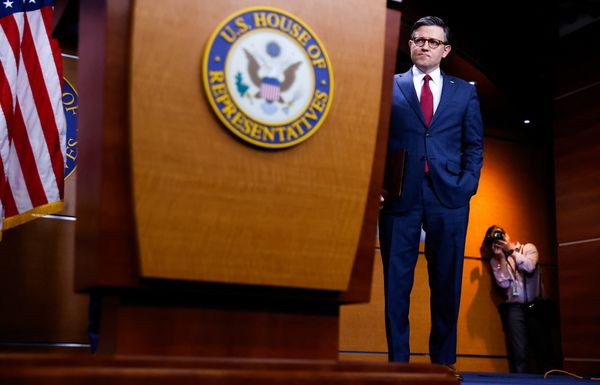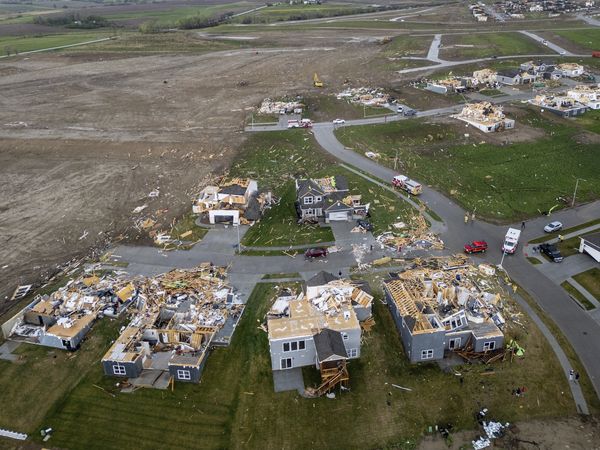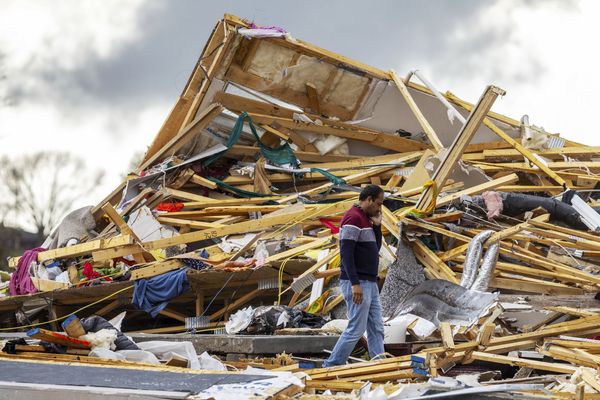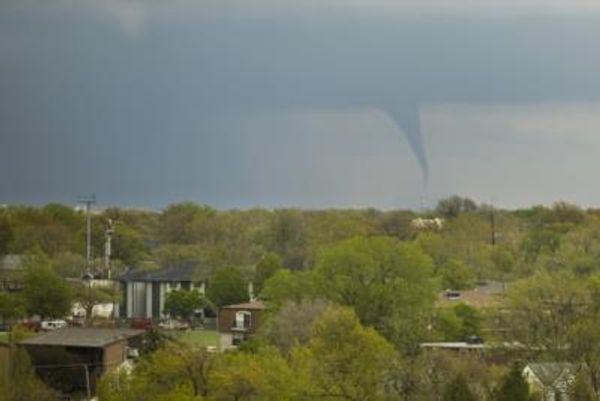
The music has stopped for western Victoria’s Pitch Festival. The large electronic music festival pulled the plug on Sunday afternoon after the Country Fire Authority (CFA) declared extreme fire danger for today. Festival attendees, industry observers and many in the local community question why the event went ahead in the first place.
This weekend’s shambles poses important questions about the social license to operate cultural events of this nature. As the world warms and our weather intensifies, large outdoor festivals are increasingly vulnerable to extreme weather. Australia’s music sector needs to begin an urgent conversation about the sustainability of these events, particularly when they’re held in sensitive locations or at risky times of the year.
The long weekend this year has been hit by a sweltering heatwave. It was 38 degrees for much of Saturday and Sunday afternoons, and the festival site was dry and dusty. By late Sunday afternoon, a fatality had been confirmed, Antony Maugeri, 23, of Niddrie, an aspiring DJ, with two more attendees taken to hospital. The Victorian Coroner is expected to hold an inquest.
It was clear from as early as Wednesday that the festival weekend would face significant fire risk. The region is tinder dry: there has been no meaningful rain since the devastating fire that burned through the neighbouring township of Pomonal in January. More than 300 firefighters are still working to watch and contain the remnants of the huge blaze that burned through Mount Buangorand threatened Beaufort.
By mid-week, with the weather forecast for a heatwave, locals were openly questioning the wisdom of continuing with the event. But the incentives to hold on and hope for the best appear to have overwhelmed common sense. Cancelling a big music festival a few days out all but guarantees huge financial losses for promoters. Many costs are sunk, including site production and booking deposits for big acts, while refunding tickets means event revenue drops to zero. Importantly, event insurance policies may require a forced cancellation by authorities for a pay-out. The result of that bad decision-making is manifest this morning.
With the news that the festival had finally been cancelled, I headed out to the festival site on Sunday afternoon to ask some questions. When I drove up to the gates, I encountered the aggressive attention of Pitch Festival security, who accused me of trespassing (I was at the front gate, asking to speak to the media liaison).
I ran into our local locksmith, who had been working all day in the hot sun to help attendees who had locked their keys in their cars. He was pretty over it: unable to find some of his prospective clients in the sea of cars in the sprawling paddock.
In front of the empty ticket booth were a number of huddled groups of disappointed festival-goers, waiting for friends to arrive to pick them up. One young woman was in tears. Despite the cancellation announcement, buses were not running, and the attendees I spoke to told me they were told that they wouldn’t be arriving until the next morning. However, at this stage, security apprehended me and physically escorted me back to my car.
On the dusty road back towards Moyston were many stopped cars. One group of festival goers was helping a carload with a punctured tyre — three young men named Tim, Ben and Cooper. They were happy to speak about their experience.
“Disappointing,” said Tim. “Lacklustre,” added Cooper. “Lack of communication”, Ben said.
“We found out that the festival was finishing today all from randoms walking about, just some guy randomly walking past,” Tim said. He explained that the lack of mobile phone access on the site meant festival-goers couldn’t read Instagram updates.
“As I started the walk over to where the signage was, I talked to the cops that were there, and they didn’t know what was going on, so the police hadn’t even been told.”
“I think they’d committed to too much expenditure, and they didn’t want to cancel.”
A large SUV drove past, giving us a beep. “Get home safe guys!”
Ben was critical of the mixed messages coming from organisers. “The signage said if you choose to leave, that’s a CFA recommendation, but that’s your choice, so people thought they wouldn’t get a refund.”
For Cooper, the issue was a “lack of organisation.”
“Some sort of looking ahead,” he told me, “if you know it’s going to be 40 degrees, perhaps you might have put up some more shade.”
“The silver lining is we’re going home.”
Not everyone got to go home. I drove back to Ararat, where I met a young couple on the main street with their tent in a trolley. They had managed to catch a taxi down to the town from the festival site, but now there was no train until morning. All the motels were booked out. They wanted to know the safest place to pitch their tent for the night — perhaps the garden of the RSL, they thought.
With one member of their audience dead, two more in hospital and others camping out in the gardens of the local town, it’s not surprising that scrutiny is now falling on Pitch Festival organisers, the modishly named Untitled Group. Some also question the messaging by the Country Fire Authority, which advised of the elevated risk but did not mandate an event cancellation.
Pitch has grown rapidly in recent years, from a boutique electronic event for a few thousand in the years before the pandemic to a full-scale 18,000-person event this year. Even last year, there had been signs that the upscaling was challenging local infrastructure, with the 4G network at Halls Gap overwhelmed. Leaving aside the risk of fire, the health and emergency services footprint of an event with the possibility of significant drug overdoses or mass heatstroke events was always likely to overstretch local ambulance and hospital capacities.
Transport infrastructure was particularly challenged. There is only a single-lane dirt track in and out of the festival site, which eventually joins a winding country road south of Moyston. As I slowly drove in the gate on Sunday, I was passed by an ambulance, lights flashing, weaving in and out of the P-plated campervans, with the dust reducing visibility to just metres.
Electronic music promoters are not famous for their civic-mindedness, but Untitled Group have disabused few stereotypes with their confused messaging and chaotic decision-making. They appear to have failed at even the simplest aspects of event communication, such as putting a time and date on their messages. Their statement about the death of a festival attendee was particularly tone-deaf, written in a kind of PR-style Instagram-speak that conveyed little empathy and less humanity.
This weekend’s chaos should not be acceptable. Music festivals are important regional tourism drawcards. But at a minimum, festivals need to be organised properly and run safely, not least because the large numbers of punters they bring in are generally young and vulnerable.
Crikey put a number of questions to Pitch festival organisers, including why wasn’t the festival cancelled earlier, and why were communications to festival-goers so confused. Perhaps understandably, we did not hear back before deadline.







